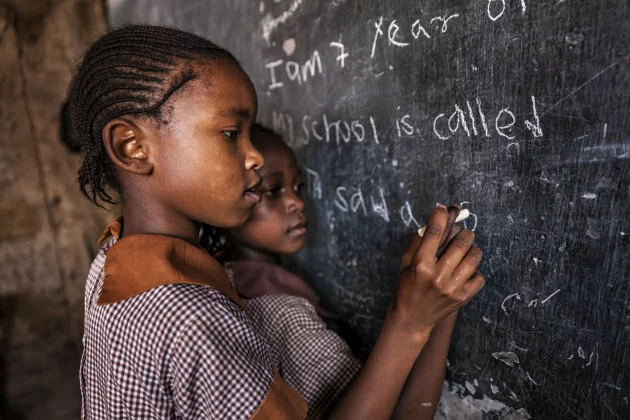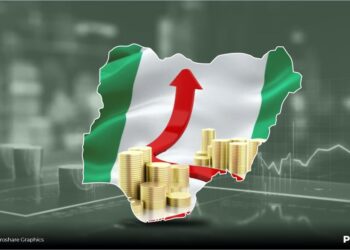Throughout the world, millions of girls are being deprived of a fundamental right – the right to education. This all-important right outlined in the Universal Declaration of Human Rights of 1984 has been reinforced, recognised as a global priority, and incorporated into developmental agendas over the past decades. Developed nations have made tremendous, progressive commitments towards achieving higher rates in girl education. However, the reality in most developing nations, including Nigeria, seems to be far from ideal. Statistics show that more than half of the 10.5 million out-of-school children in Nigeria are girls – the highest in the world, indicating that for every 5 out-of-school children, 3 are girls.
The constraints faced by girls such as social exclusion, cost, distance, poverty, gender inequality, traditional influences and early marriage, as well as parental literacy continue to sideline many girls from getting an education. In Northern Nigeria, gender norms and stereotypes that define girls primarily by their function as wives and mothers often exclude them from decision-making processes and community involvements. They, therefore, reach adult age without control over many areas of their lives.
With the efforts of many organizations and particularly, the United Nations Children’s Fund (UNICEF), an agency of the United Nations, the mindset of many families has started shifting and particular attention is now being paid to the girl. In 2012, the International Day of the Girl was established and has become a renowned day, as it has reached the milestone of a decade of existence.
The International Day of the Girl has contributed to the empowerment of girls and women all over the world. It has brought focus to addressing challenges faced by adolescent girls and women. The day also to celebrates their empowerment and fulfillment of rights. The day has created huge awareness of the right to a safe, educated, and healthy life for adolescent girls in their formative years, continuing until they mature into women.
It is pertinent to add that SDG Goal 5 is fully focused on gender parity. It aims to achieve gender equality and empower all women and girls. The targets in Goal 5 as elucidated below specifically clarifies how gender equality and empowerment for all women and girls can be achieved. It advocates the end of all forms of discrimination against all women and girls everywhere and equally seeks to eliminate all forms of violence against women and girls in public and private spheres, including trafficking, sexual violence, and other types of exploitation.
It further aims to eliminate all harmful practices, such as childhood, early and forced marriage as well as female genital mutilations. It recognises values of unpaid care and domestic work through the provision of public services, infrastructure and social protection policies, and the promotion of shared responsibility within the household and the family as nationally appropriate. It is aimed at ensuring women’s full and effective participation and equal opportunities for leadership at all levels of decision-making in political, economic, and public life. The goal seeks to ensure universal access to sexual and reproductive health and reproductive rights as agreed in accordance with the Programme of Action of the ICPD and the Beijing Platform for Action and the outcome documents of their review conferences.
Given the commitments made, it is time for the girl to be emancipated from all shackles that hold her back and fulfill her potential. The quality of girls’ future will be determined by the quality of opportunities they have now to learn and develop relevant skills that will enable them to access, perform, and create dignified and fulfilling work. If this is achieved, there is no limitation for the girl from infancy till adulthood.
Mastercard Foundation, created in 2006 by Mastercard International which operates independently under the governance of its own board of directors, believes that gender equality is imperative to building prosperous, inclusive economies so that everyone can have the opportunity to learn and prosper. Sub-Saharan Africa boasts the highest women’s labour force participation rate than any other region, the jobs held by women are more likely to be unpaid, insecure, and part-time. Displaced, disabled, and rural women are even more likely to bear the burden of these gender inequities. With the Young Africa Works strategy, the Foundation has made a bold commitment to girls and young women under our Young Africa Works strategy, which seeks to enable 30 million young Africans to access dignified and fulfilling work – 70 per cent of whom will be young women.
It is quite commendable that there are funding programmes that challenge occupational segregation and champions having access to more paid employment. Women have also been given more access and quality of education for children is imperative for all youth. Education matters particularly for young women, because of the strong relationship between increased education for girls and lower rates of child marriage, higher incomes and increased decision-making power in the household.
It is commendable when charity organisation invest not just in delivering access to schooling but access to learning that ultimately leads to earning where girls and young women develop the kind of skills that are relevant to the future of work—21st century skills, technical and vocational skills, entrepreneurship skills, digital skills – as well as the confidence to use their voices to shape their communities and futures.
– Akinwale, a public affairs analyst writes from Abuja





